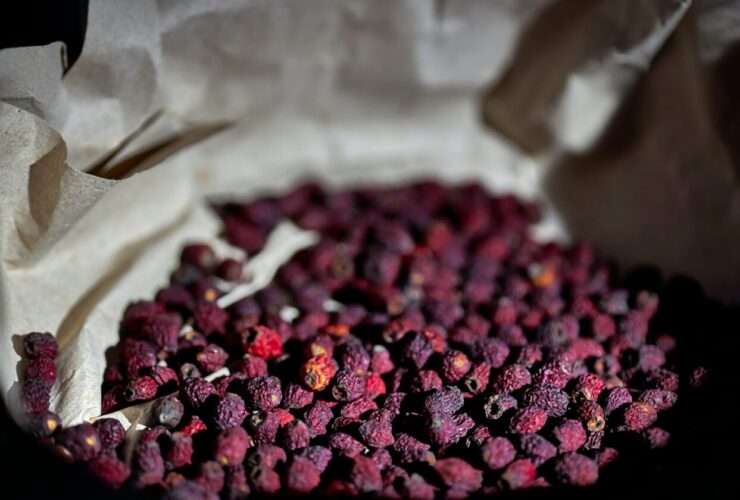Understanding the impact of specific foods on health conditions is crucial for maintaining overall well-being. In this article, we’ll explore the question: Is cane sugar keto-friendly? This inquiry is particularly relevant for individuals following the ketogenic diet, a dietary approach known for its potential benefits in managing various health conditions.
Cane sugar is not considered keto-friendly due to its high carbohydrate content, which can disrupt ketosis, the metabolic state central to the ketogenic diet’s efficacy. Avoiding cane sugar is essential for individuals seeking to maintain ketosis and reap the potential health benefits of this dietary approach.
The ketogenic diet is a low-carbohydrate, high-fat eating plan designed to induce ketosis, a metabolic state where the body primarily burns fat for fuel instead of carbohydrates. This dietary approach has gained popularity for its potential benefits in weight management, blood sugar control, and cognitive function.

Cane sugar, derived from sugar cane, is predominantly composed of carbohydrates, offering four calories per gram. Its high carbohydrate content primarily consists of sucrose, a disaccharide of glucose and fructose molecules. While cane sugar may seem innocuous, its rapid absorption and spike in blood glucose levels can pose challenges for individuals adhering to the ketogenic diet.
In a one-ounce (28-gram) serving of cane sugar, the nutritional breakdown typically includes:
- Calories: 105 kcal
- Total Carbohydrates: 28 grams
- Sugars: 28 grams
- Protein: 0 grams
- Fat: 0 grams
- Fiber: 0 grams
These values highlight the concentrated nature of cane sugar, with almost all its calories derived from carbohydrates, particularly sugars.
Given its high carbohydrate content, even small quantities of cane sugar can elevate blood sugar levels and inhibit ketone production, disrupting the metabolic state crucial for fat burning and weight loss on the ketogenic diet.
In contrast, keto-friendly sweeteners such as stevia, erythritol, and monk fruit provide viable alternatives for individuals seeking to satisfy their sweet cravings while adhering to the principles of the ketogenic diet. These sugar substitutes offer negligible carbohydrate content and minimal impact on blood sugar levels, enabling individuals to enjoy sweetness without compromising ketosis.
While cane sugar should be avoided on the ketogenic diet, it does offer some potential benefits when consumed in moderation as part of a balanced diet.
- Source of Energy: Cane sugar is a quick energy source due to its high carbohydrate content. When consumed in moderation, it can provide a rapid energy boost, making it beneficial for individuals engaging in intense physical activity or requiring a quick energy replenishment.
- Enhances Flavor and Palatability: Cane sugar is widely used in cooking and baking to improve the flavor and palatability of various dishes and beverages. Its sweet taste can make nutritious foods more appealing, encouraging the consumption of nutrient-dense options such as fruits, vegetables, and whole grains.
- Preservation of Food: Sugar acts as a natural preservative, inhibiting the growth of microorganisms and extending the shelf life of certain foods. In traditional food preservation methods such as jam-making and fruit preservation, cane sugar is crucial in preventing spoilage and maintaining food safety.
- Facilitates Fermentation: In fermentation, sugar is a substrate for microorganisms such as yeast and bacteria to produce alcohol, organic acids, and gases. Fermented foods and beverages like kombucha, yogurt, and sourdough bread rely on sugar for their production, offering probiotic benefits and enhancing gut health.
- Cultural and Culinary Significance: Cane sugar holds cultural significance in many societies and cuisines worldwide. It has been used for centuries in traditional rituals, ceremonies, and culinary practices, contributing to the rich tapestry of global food culture.
While these potential benefits highlight the versatility and utility of cane sugar in various contexts, it’s essential to consume it mindfully and in moderation. Excessive intake of cane sugar can lead to adverse health effects, including weight gain, insulin resistance, and increased risk of chronic diseases. Therefore, individuals should prioritize whole, nutrient-dense foods and limit their consumption of added sugars, including cane sugar, for optimal health and well-being.
While cane sugar should be avoided on the ketogenic diet, individuals may still enjoy sweetness in moderation using keto-friendly sweeteners. It’s essential to be mindful of portion sizes and consumption frequencies to maintain ketosis and achieve desired health outcomes. Additionally, those with specific health conditions, such as diabetes, should consult healthcare professionals for personalized dietary recommendations.
Incorporating keto-friendly sweeteners into recipes and beverages can satisfy cravings for sweetness without derailing the ketogenic diet. Experimenting with alternative ingredients and exploring sugar-free options can enhance the palatability of ketogenic meals while supporting dietary adherence and long-term success.
In conclusion, cane sugar is incompatible with the ketogenic diet due to its high carbohydrate content. By prioritizing keto-friendly sweeteners and adopting a mindful approach to dietary choices, individuals can effectively maintain ketosis and harness the potential health benefits of the ketogenic diet. Consulting healthcare professionals for personalized guidance and exploring creative culinary options can empower individuals to optimize their dietary choices and overall well-being on the ketogenic journey.
Reference
(1)Cane Sugar: Are There Health Benefits?
https://www.webmd.com/diet/health-benefits-cane-sugar
(2)Evidence for sugar addiction
https://www.ncbi.nlm.nih.gov/pmc/articles/PMC2235907/
(3) High Intake of Sugar and the Balance between Pro- and Anti-Inflammatory Gut Bacteria
https://www.ncbi.nlm.nih.gov/pmc/articles/PMC7284805/
Was this helpful?

Joseph Emb, RDN
Founder of StyleVitally.com | Registered Dietitian & Wellness Advocate
What I Cover:
I’m passionate about connecting nutrition science and everyday wellness to help people live healthier, more vibrant lives. I write about evidence-based nutrition, mindful eating, sustainable lifestyles, and holistic well-being at StyleVitally.com.
My Background:
The University of Texas in Austin, where I earned my Dietetics diploma, laid the groundwork for my nutrition and health career. My training and hands-on experience taught me the science and art of using nutrition to enhance health and well-being.
Professional Journey:
I’m an RDN with lots of experience. I’ve helped people seeking tailored nutritional recommendations in clinical settings and community outreach programs. My constant learning and professional development ensure that my recommendations are always based on the latest evidence.
Ethical Commitment:
My practice prioritizes integrity. My content is transparent and objective, following the most significant ethical standards. I can give my audience unbiased advice because I’m not affiliated with food businesses or industry associations. I want to help people make informed health decisions that match their values and ambitions.
Join Me on the Wellness Journey:
Join me on the path to vitality and well-being, whether facing nutritional issues, seeking sustainable lifestyle changes, or simply wanting a better, happier you. We’ll discover how diet, mindfulness, and holistic well-being can maximize your potential.









